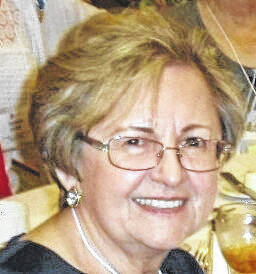Calvin Coolidge served as vice president to President Warren G. Harding. He had little to do except for presiding over the Senate. Coolidge kept an $8 a day suite at the Willard Hotel in Washington, DC, and dined out often. When Coolidge was asked why he attended so many social functions, he answered “Got to eat somewhere.” Coolidge was a man of few words. One society matron observed that he always looked like he wished he was elsewhere and when he pursed his lips, he looked like he had been weaned on a pickle.
At a dinner party, a woman teased Coolidge by saying “Mr. Vice President, I made a bet with my friends that I could get you to say at least three words this evening.” Coolidge replied, “you lose.”
The surprise came on Aug 2, 1923 when President Warren Harding died from a heart attack in a San Francisco hotel room. Florence, his wife, refused to have an autopsy and had his body embalmed one hour after his death. This led to speculation about a mistress and an illegitimate child, and a possible poisoning, — followed by the Teapot Dome scandal.
Coolidge was visiting his father in Vermont when he received a telegram notifying him of Harding’s death. Since his father was a Notary Public, Coolidge was able to take the oath of office in his father’s parlor at 2:45 a.m. by the light of a kerosene lamp.
Coolidge was now, surprisingly, our 30th president. His taciturn personality and dry sense of humor earned him the nickname of “Silent Cal.” Through regular press conferences, public appearances and speaking on the radio, Coolidge cultivated a public image of a prudent Vermonter, with a reputation for integrity that overcame his opponents’ attempts to tie him to the scandals of the Harding administration. But now, Coolidge needed a vice president.
Enter one Charles Gates Dawes. Dawes was a Chicago banker and politician who had served under Gen. John Pershing during WWI. Dawes was also a forthright man, given to straight talk. Once, when Dawes was testifying before a congressional committee that was investigating charges of waste and extravagant spending during WWI, he was asked if it was true that excessive prices were paid for mules in France. He answered, “’Hell ‘n Maria,’ I’d have paid horse prices for sheep if the sheep could have pulled artillery to the front.”
The surprising thing about Dawes is that he won the Nobel Peace Prize in 1925 for reducing the tension between Germany and France after WWI by instituting the Dawes Plan. The other surprising thing about Dawes is that he also wrote a hit song.
A self-taught musician, Dawes would often plunk out tunes on his piano. He was particularly fond of one tune he wrote in 1912, “Melody in A Major.” It transformed into the No. 1 pop song “It’s All in the Game” in 1951 when Carl Sigman added lyrics. Then, classical violinist, Fritz Kreisler, added a version for orchestra and it became a No. 1 hit song for Tommy Edwards in 1958. It is the only No. 1 pop single written by a U.S. Vice President who had also been awarded the Nobel Peace Prize.
Al Gore, who served as the 45th vice president of the U.S., received the Nobel Peace Prize in 2007 for warning us about climate change and the dangerous shifts in temperature and weather patterns from the burning of fossil fuels like coal, oil, and gas. However, to date, Al Gore has not written a hit song.
Lynda is vice president of Colonial Dames. She can be reached at lyndaabegg@charter.net. Opinions in this column belong to the writer only and are not necessarily shared by the newspaper.

